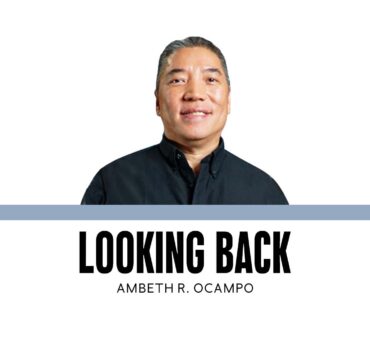Drawing the line between influencers and journalists

Dhaka—The well-known proverb “the pen is mightier than the sword” perhaps needs redefining in today’s world, as social media has emerged as the mightiest of all. These platforms have spawned a vast number of so-called “influencers” who operate without formal accountability, thriving on their ability to deepen divisions and sharpen antagonisms. They often recklessly blend lies with half-truths, distort facts, misquote others, and cherry-pick data to suit their purposes. And here lies the real danger—the blurring of lines between professional journalism and influencer content—which has become one of the most disruptive developments of the digital age.
This failure to distinguish between professional journalists and self-styled influencers has left the public vulnerable to manipulation. In particular, assembling a mob for political or personal gain has become one of the most alarming phenomena in Bangladesh today. Professional journalists working for newspapers and broadcast channels—those who painstakingly verify facts, exercise editorial judgment, and adhere to professional ethics—are losing ground in the battle for truth. In contrast, influencers are driven by an insatiable hunger for popularity, likes, and content-generated income, sometimes twisting facts or spreading lies to suit their agenda. Shockingly, quite a few people having years of experience in journalism have also senselessly sacrificed ethical standards for cheap popularity or political ambition.
Bangladesh, where media literacy among the general populace is still quite low, has thus become fertile ground for the cultivation of hatred. Politicians, artists, cultural figures, and media personalities all remain at risk of being targeted for online harassment. Rather than fostering healthy debates or meaningful counterarguments, the widespread practice is to brand opponents with derogatory labels, distort information, or unleash vulgar language.
In Bangladesh, Facebook and YouTube are the primary battlegrounds for such attacks, while globally, X (formerly Twitter) plays the leading role. The destructive power of social media is not unique to Bangladesh: in 2018, United Nations investigators concluded that these platforms helped incite ethnic hatred against the Rohingya in Myanmar, contributing to what many recognize as genocide. In 2021, a lawsuit was filed against Facebook’s parent company, Meta, for failing to prevent incitement of violence against the Rohingya.
Of course, social shaming as a trend is not new. But strikingly, those most frequently targeted are not black marketeers, corrupt bankers, nor food adulterators, for instance, as one might expect. Instead, political rivals and public figures often face the brunt of orchestrated campaigns. Just as the Awami League had become a fascist party by often calling for the total annihilation of their political opponents, now we are witnessing the emergence of another group of people who have started to act in the same way to eliminate their rivals.
In this volatile context, the government’s response has been far from satisfactory. It has failed to prevent troublemakers, provocateurs, and criminals, particularly those driven by or operating on social media, although quick arrests were made in a few cases, such as the rape and murder of a child in Magura and the brutal murder in Mitford.
The government appears not to be paying sufficient attention. Some critics even allege that it is deliberately ignoring these provocations—an accusation many of us would rather not believe. Still, inaction is no longer an option. While no one expects an interim government to shut down the internet or suppress free speech, it is internationally recognized that governments bear the primary responsibility for curbing online hatred and incitement to violence.
Yes, regulating social media is undeniably complex, given that these platforms are run by multinational corporations. Yet governments around the world have already imposed billion-dollar fines, forcing companies to adopt stricter policies against the circulation of harmful content. So, Bangladesh must follow suit, and urgently. It must hold these companies accountable, compel them to act against hate speech or manipulated content, and ensure that the digital space does not remain a breeding ground for hatred. Ahead of the 2026 election, holding social media platforms accountable is paramount. Regulating social media is not about curbing freedom of expression; it is about safeguarding society from manipulation, division, and violence. The cultivation of hatred must not continue unchecked. The Daily Star/Asia News Network
——————
Kamal Ahmed is consulting editor at The Daily Star. He led the Media Reform Commission under the interim government. His X handle is @ahmedka1.
——————
The Philippine Daily Inquirer is a member of the Asia News Network, an alliance of 22 media titles in the region.

















Introducing the new cybercrime treaty